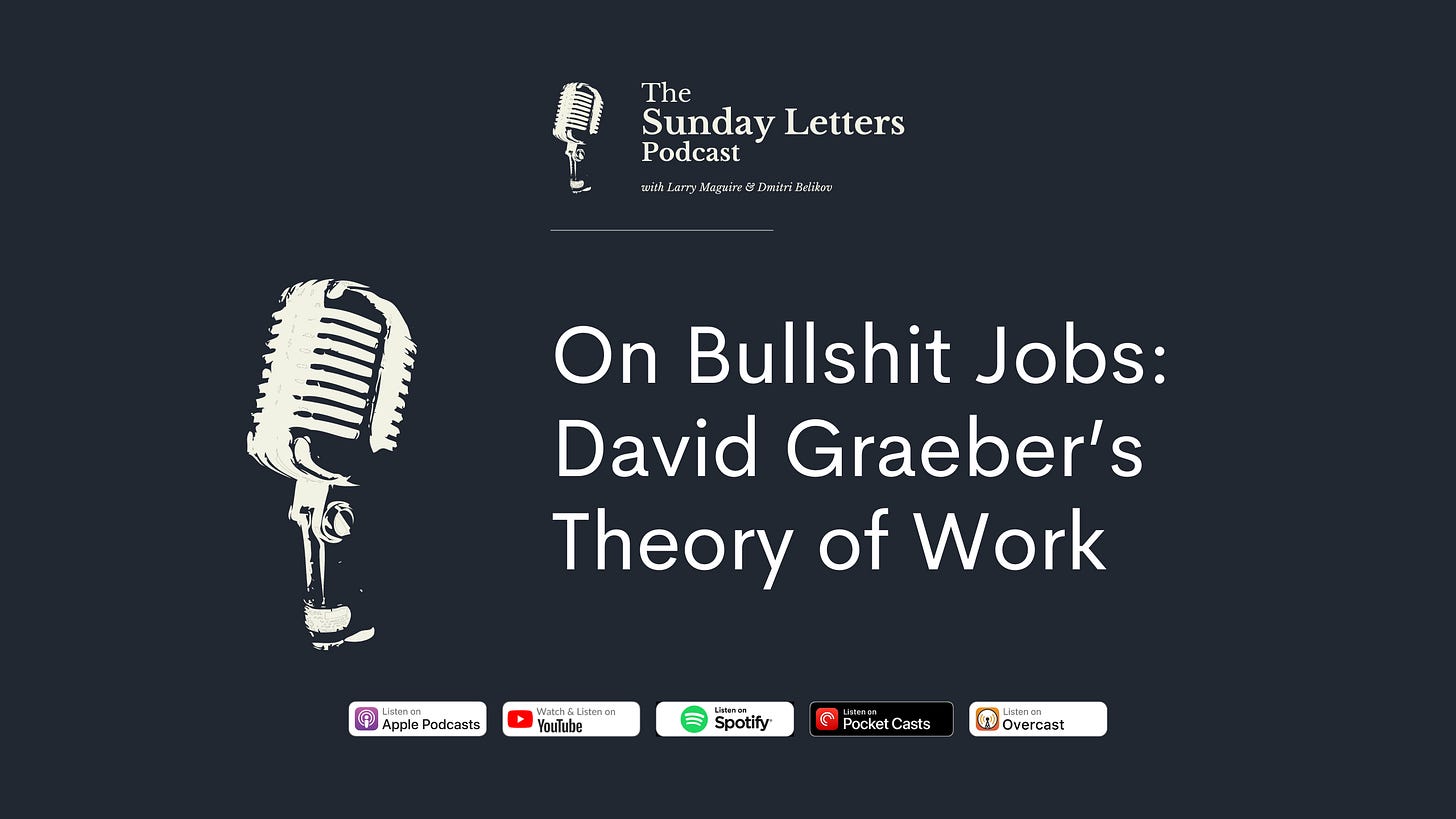Welcome to this week’s edition of the podcast. If you like what we’re doing, consider becoming a paid subscriber. If you’d rather not, you can offer a one-off tip here, or get yourself some merch here. Many thanks for your support!
In this week’s episode, we’re discussing David Graeber, anthropologist and activist, who introduced the concept of "bullshit jobs" in a 2013 article in Strike Magazine titled “On The Phenomenon of Bullshit Jobs”. He hit a nerve and later expanded into a full book titled Bullshit Jobs: A Theory, published in 2018. Graeber defines a "bullshit job" as a form of employment that is so completely pointless, unnecessary, or pernicious that even the employee cannot justify its existence. At the same time, they feel obliged to pretend that this is not the case. He argues that these jobs have proliferated due to societal and economic factors that prioritise employment for its own sake, rather than for the productive contributions it may offer people and society. He also discusses second-order bullshit jobs; the ones that are created to support the higher-order bullshit jobs. Think about the cleaners, security staff, electricians and plumbers needed to maintain a building filled with people administering speculative investments.
There are five categories of bullshit jobs according to Graeber;
Flunkies: These jobs exist primarily to make others feel important. They involve employees who serve to make their superiors feel like their position or office has prestige and status. Examples might include receptionists, administrative assistants, and door attendants whose roles are more about projecting a sense of importance than performing tasks critical to the organization.
Goons: These jobs are adversarial in nature and exist because other companies employ them. Goons include lobbyists, PR specialists, telemarketers, and corporate lawyers, whose primary functions are to outmanoeuvre competitors or manipulate public perceptions and opinions in ways that are not necessarily aligned with the public good.
Duct Tapers: These employees are tasked with fixing problems that should not exist or could be resolved if proper systems were in place. Essentially, they are there to patch or cover up avoidable flaws within the organization. IT support that continually fixes the same recurring problem or administrative staff who compensate for glitches in organisational procedures are examples of duct tapers.
Box Tickers: These are jobs that involve creating the appearance that something useful is being done when it really isn't. This could include survey administrators, compliance officers, or corporate auditors who conduct assessments that have no real impact on the company’s or agency’s effectiveness but are there to satisfy external requirements or internal policy.
Taskmasters: These roles are divided into two sub-types: those who manage or create extra work for those who do not need it, and those who themselves do nothing but create unnecessary tasks for others. This includes middle management roles where the primary function is to supervise people who do not need supervision or generate reports that no one reads.
Graeber argues that meaningless, soulless jobs not only cause severe psychological distress but also represent a misallocation of economic resources and human potential. His theory has implications for understanding organisational inefficiencies, worker dissatisfaction, and the societal value placed on work.
How do you feel about your work? Take the short survey.
Support Sunday Letters
Send us a Tip
Get some Sunday Letters merch
Subscribe on YouTube













